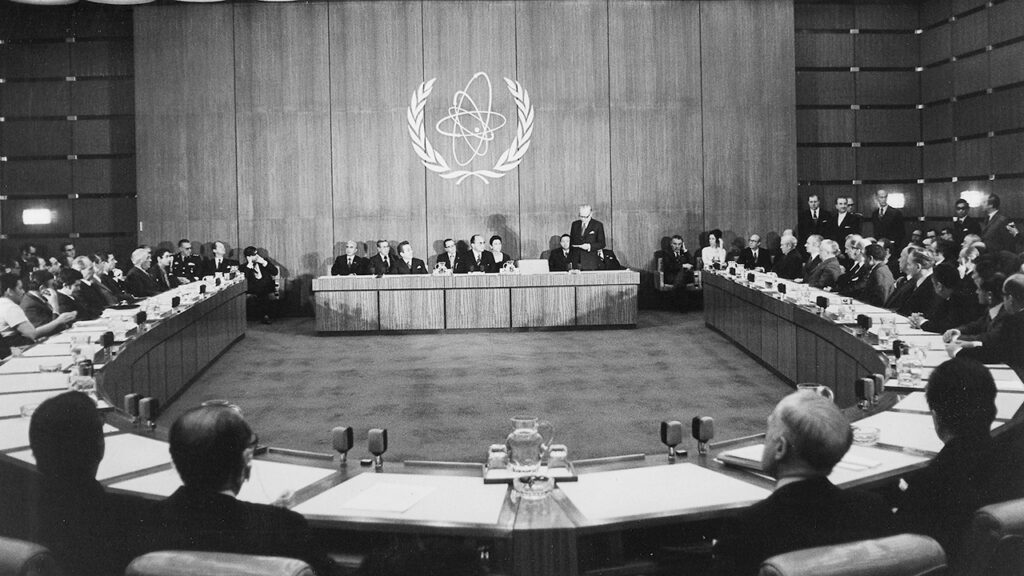c:o/re Senior Fellow 09/24 – 02/25

Elisabeth Röhrlich is an Associate Professor at the University of Vienna’s History Department. Her expertise is in twentieth century international history, the history of international organizations, and the history of the nuclear age and the Cold War. She received her PhD in history from the University of Tübingen and has held fellowships at the Norwegian Institute for Defense Studies, the German Historical Institute and the Woodrow Wilson International Center for Scholars in Washington D.C., and Monash University South Africa. She is the author of a prize-winning book about the former Austrian chancellor Bruno Kreisky. Her writings on the history of the International Atomic Energy Agency have been published in journals such as Diplomacy and Statecraft, Cold War History, and the Journal of Cold War Studies. Her second book “Inspectors for Peace: A History of the International Atomic Energy Agency” has been published with Johns Hopkins University Press in 2022.
An IAEA for AI? The Regulation of Artificial Intelligence and Governance Models from the Nuclear Age
Do we need an international monitoring agency for AI? When Sam Altman, CEO of OpenAI, called for the global regulation of artificial intelligence in his May 2023 testimony before the US Congress, he named the International Atomic Energy Agency as a model. The IAEA is an autonomous international organization, linked to the UN system, and verifies that states keep their commitment to the nonproliferation of nuclear weapons. The IAEA thus is a well-established international institution for the global governance of a dual-use technology that, if spread unchecked, poses a threat to international security. Since Altman’s testimony, journalists, nuclear physicists, think tankers, and even the UN Secretary General have commented on the proposal of an “IAEA for AI.” While António Guterres supported the idea of an UN-associated regulatory agency for artificial intelligence, others pointed to the limits of the IAEA’s mandate and doubted its usefulness as a reference.
The predominance of nuclear age-inspired references, vocabulary, and thinking in the ongoing debates about the regulation of AI is striking. The project seeks to intervene in the ongoing debate over an “IAEA for AI” by focusing on the beginnings of the so-called nuclear age and on early efforts to regulate dual-use technologies. Specifically, it aims to investigate how policymakers and diplomats, international civil servants, and nuclear scientists negotiated the terms of a future global nuclear order at the newly founded United Nations, 1945–1956.
The comparative historical approach may open new perspectives on the ongoing debate about the global governance of artificial intelligence, and it promises to help better understand why certain regulatory models were (and are) promoted by certain actors while others are not. Rather than drawing simplified conclusions from the past, the project uses the early efforts to regulate nuclear technologies as a historical background before which patterns of the current debate can become clearer.
Publications (selection)
Röhrlich, E. (2025). Why is the nuclear–AI analogy so popular? Nature Reviews Physics. https://doi.org/10.1038/s42254-025-00873-x
Kott, S., Muschik, E.-M., & Röhrlich, E. (Eds.). (2025). International Organizations and the Cold War: Competition, Cooperation, and Convergence. Bloomsbury Academic.
Röhrlich, E. (2022). Inspectors for Peace. Johns Hopkins University Press. https://doi.org/10.1353/book.100164
Röhrlich, E. (2018). An Attitude of Caution: The IAEA, the UN, and the 1958 Pugwash Conference in Austria. Journal of Cold War Studies, 20(1), 31–57. https://doi.org/10.1162/jcws_a_00800
Röhrlich, E. (2018). Negotiating Verification: International Diplomacy and the Evolution of Nuclear Safeguards, 1945–1972. Diplomacy & Statecraft, 29(1), 29–50. https://doi.org/10.1080/09592296.2017.1420520
Röhrlich, E. (2016). The Cold War, the developing world, and the creation of the International Atomic Energy Agency (IAEA), 1953–1957. Cold War History, 16(2), 195–212. https://doi.org/10.1080/14682745.2015.1129607
Blogpost by Elisabeth Röhrlich:


